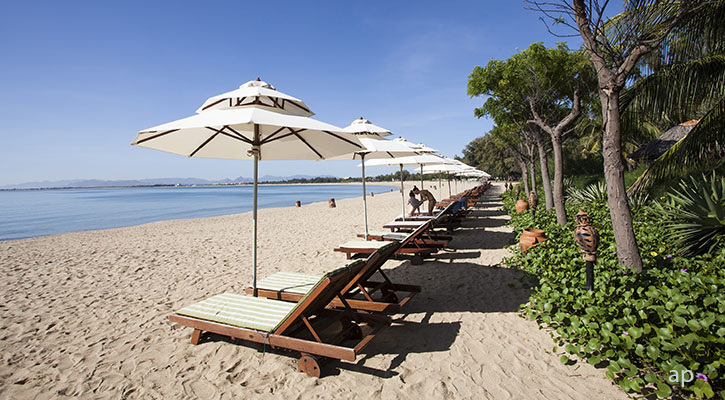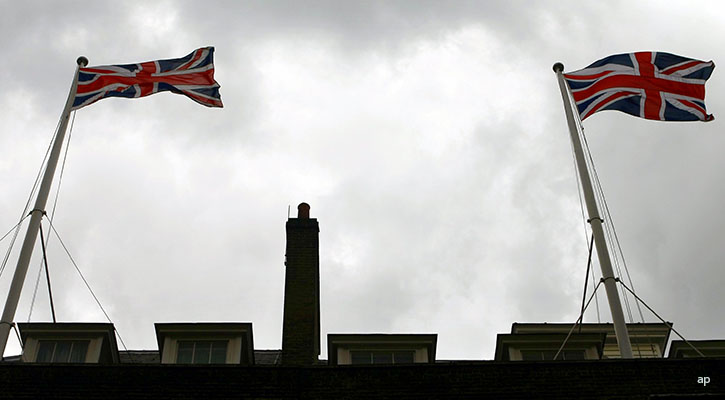
Summer holiday season is upon us and parents and children will be feeling an equal mix of excitement and trepidation. With many countries dropping Covid-19 restrictions, airports and airlines are busy again, heralding the first “normal” summer since lockdowns scuppered the 2020 and 2021 seasons.
After those lean years, this will be a much-needed boost for the travel industry, but investors in the sector are showing a degree of scepticism. This is reflected in depressed share prices. Below, we look at travel sector shares under Morningstar coverage and whether they represent a risky buying opportunity, or whether their valuations fully reflect the multiple risks at play.
Given the wealth of listed travel stocks globally, there are at least plenty of opportunities. We’ve narrowed down the list to LSE-listed stocks and there are four under Morningstar analyst coverage. Three are airlines, easyJet (EZJ), Wizz Air (WIZZ) and BA owner IAG (IAG). The fourth is cruise operator Carnival (CCL), which is listed in New York and London. (We also cover Ryanair (RYA), which is listed on Euronext Dublin and is rated as a 4-star stock.)
All of these companies’ share prices are still below pre-pandemic levels (apart from Ryanair), and they have notched up some chunky falls this year, ranging from -15% to -35%. All are 5-star stocks, which mean they are significantly undervalued, according to Morningstar metrics. Still, two have the highest fair value uncertainty rating of "very high" – easyJet and IAG – while the others have a "high" uncertainty rating.
That doesn’t mean external uncertainty, although there’s plenty of that to contend with. It’s how Morningstar assesses how volatile earnings or cash flow are likely to be in the next five to 10 years.
The official methodology explains it as: "Morningstar’s Uncertainty Rating captures the range of potential intrinsic values for a company and uses it to assign the margin of safety required before investing." So a 5-star stock may look undervalued but doesn’t mean it’s a "bargain" per se, given the uncertainty attached to that valuation.
News Carousel
Still, travel companies are more optimistic than they have been in the last few years, and that is reflected in their latest market updates. Let’s round up a few of analyst Joachim Kotze's comments.
"We believe EasyJet is well positioned to benefit from the continued recovery over the summer and beyond, and we see shares as attractively valued."
"If the [Russia-Ukraine war] escalates resulting in permanent geopolitical shifts we could see negative longer-term growth impacts, hence the lowering of our medium-term passenger growth rate. We do believe, however, that Wizz Air will be able to shift capacity to less-affected markets in Western Europe and the Middle East. The share price has come under considerable pressure and currently trades at a big discount to our fair value estimate. Despite the murky outlook, we believe the margin of safety is wide enough to account for these risks."
"International Airlines Group, owner of British Airways and Iberia, is lagging peers in the recovery … [IAG] shares appear attractive but we caution investors about our very high uncertainty rating for the firm due to high levels of indebtedness."
"Ryanair remains optimistic about the return of passengers to its route network but strikes a tone of caution as it projects a modest return to profitability for financial 2023 ... . The group has a proven low-cost model and a strong balance sheet to take advantage of potential weaknesses among peers and gain market share."
Finally, analyst Jaime Katz says this of cruise company Carnival.
"We contend that the market is underestimating pent-up consumer demand for travel, with Covid-19-related restrictions receding around the globe. With plenty of evidence that the appetite to travel exists…we believe the margin of safety on cruise operator shares remains compelling for investors looking for exposure to the sector."
Risks Galore
The risks to international travel are clear, however. And the list is long:
- War in eastern Europe;
- High oil prices increasing fuel costs for airlines;
- The monkeypox outbreak;
- China lockdowns;
- Soaring inflation, rising taxes;
- The environmental impact of flying;
- Passport delays;
- Staff shortages and IT issues at airlines and airports.
Faced with this formidable mix, it’s amazing that your average tourist even leaves the house, but consumer behaviour is often counterintuitive.
Starved of opportunities in the last two years, fully-vaccinated travellers are keen to spend money on "experiences" like cruises regardless of the risks. Economists talk of "pent-up demand" and this could be in evidence here, especially if some people still have a savings buffer from the pandemic.
For their part, travel bears point to airport footfall numbers as evidence that Covid-19 has left a medium-term scar on the leisure industry. 4.2 million people visited Heathrow Airport in March 2022, for instance, compared with the 5.4 million seen in February 2020, the final full month before the UK's first lockdown.
More optimistic observers expect demand to recover to pre-pandemic levels eventually. But the market has grown very impatient. If you’re in it for the long-haul, though, stocks are at pretty depressed levels right now. If you buy, it could be a no-frills experience.





























